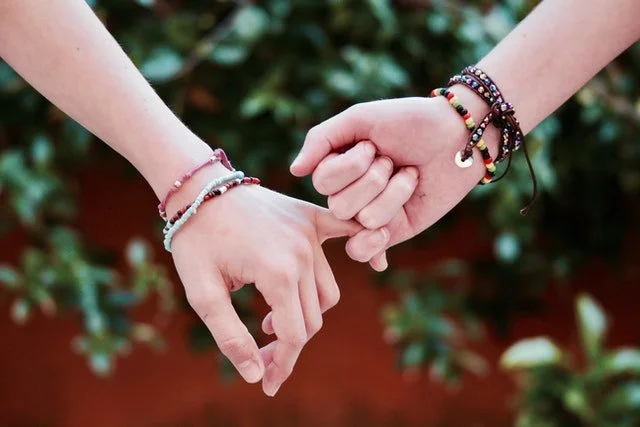Have you been struggling in the relationship department? Do you feel like you're constantly meeting and falling for the same type of person? Are the behaviors you promised yourself you wouldn't repeat still being repeated? Have you been blaming "your type" as the reason why it didn't work out?
If these scenarios seem a little too familiar to you, then your past could be playing a role in your present-day relationships.
Here's how to find out if your past attachments are affecting your current relationships.
What is Attachment?
Attachment is defined as the psychological, evolutionary, and ethological theory regarding relationships and humans.
Attachment is first thought of from the emotional connection you formed as a baby with the person that took care of you.
There are several theories that state that the bonding you first experienced as an infant during your first relationship usually determines how you relate to people through the remainder of your life.
Attachment Styles
There are several different attachment styles based on the experiences you may have had: secure, anxious, avoidant, and disorganized.
Secure Attachment
If you felt safe and comfortable as a child, there's a good possibility that you have a secure attachment style. Your caregiver probably soothed you when you cried, fed you when you were hungry, and changed you when needed. Your needs were met, and you felt a sense of security.
A strong foundation as an infant helped build a stable base for empathy, self-assurance, expression, and satisfaction. A secure attachment style usually thrives in close relationships. Secure attachment typically means that even when faced with challenges or disappointment, this type of person is able to bounce back.
Anxious Attachment
Anxious attachment happens when a caregiver was inconsistent with their parenting style. The off and on of being taken care of versus being left unattended left you feeling anxious. Due to not knowing when your needs would be met, you grew up with a sense of uncertainty.
If you have an anxious attachment style, you may be needy. You may even know about your neediness and feel ashamed or embarrassed by it. Due to your lack of self-esteem, you may even question if your partner wants to be with you.
Avoidant Attachment
If your primary caretaker was unavailable for the most part, you probably have an avoidant attachment style. Since your needs were rarely met, you had to take care of yourself.
The foundation for the avoidant attachment style causes you to avoid intimacy and crave independence. You have a hard time trusting and leaning on others. So much to the point that you avoid connecting with them on an emotional level to avoid further disappointment.
Disorganized Attachment
Childhood trauma, neglect, or abuse are often associated with a disorganized attachment style. In this case, the primary caregiver probably acted as both a source of comfort and fear depending on the situation. These experiences led to trauma that you carry with you in your own relationships.
With disorganized attachment, you're probably still experiencing childhood trauma, so the world may feel unsafe. Behaviors that you may have experienced as a child are more likely to be replicated as an adult. This type of style can lead to emotional extremes in relationships. You may also come off as insensitive or controlling with a partner.
Getting Help
If you notice your past attachments may be affecting your current relationships, you don't have to go through it alone. It is possible to change your attachment style, even as an adult. Therapy can help you work through your past so you can have a better future for yourself and your relationship.
If you would like to schedule your appointment, you may do so online by clicking here to go to the appointments page. There you can view therapist’s availability and schedule conveniently online.


